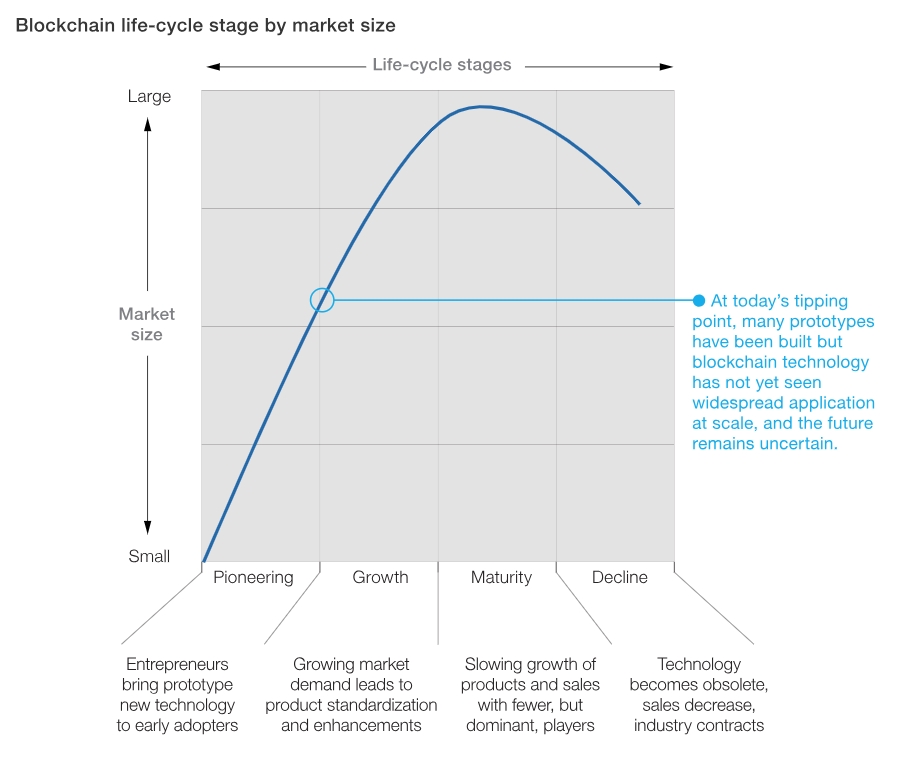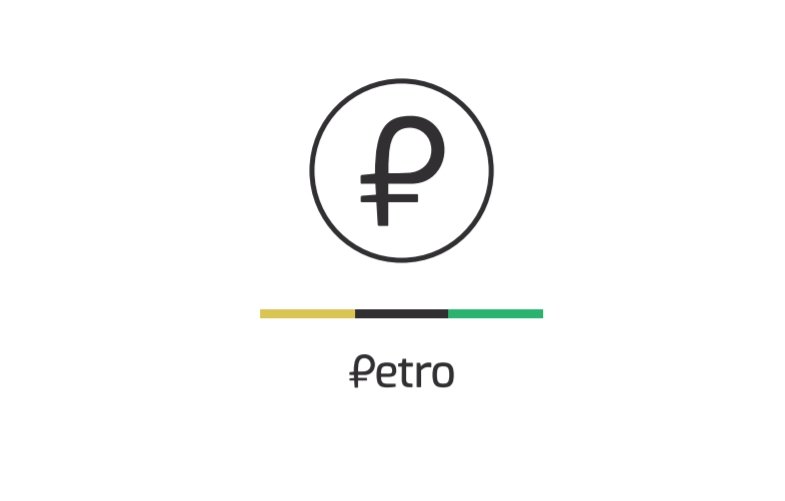
McKinsey & Company, a consulting firm, finds that there is hardly any evidence that block chains are put into practice. The report, released on Jan. 4 (local time), showed this opinion.
McKinsey is the world’s largest consulting firm with more than $ 10 billion in sales last year and 27,000 employees worldwide. McKinsey’s report points out that there is very little evidence that the block chain is practical and used for expansion. The breakthrough technology that block chains seemed to be expected in some cases has not yet been shown, and most of the time, considering consumption funds and time, has not achieved substantial results.
The report also points out that it is not surprising that the block chain development process is not smooth, because the block chain is relatively unstable and expensive and is an early stage technology. In order to evolve a product, this report can be divided into four stages: introduction, growth, maturity, and decline according to the life cycle hypothesis, while the introduction is the starting point of technology and the second is the product success. But the report says that the block chain has not yet reached stage two.

Also, given the principle of problem solving, where the simplest solution is often the best solution, it is possible that a block chain payment might be a wrong answer. McKinsey, meanwhile, stresses that there is practical value in that it is a way to show niche applications, rationalization, and even innovation capabilities in a block chain. The block chain will also help to move ownership from business to consumer, he added.
At the end of December last year, the US news magazine Times reported that Bitcoin could bring about fundamental freedom. It is a non-censored means of exchange that can be a valuable financial tool. Nevertheless, I analyzed the current situation that the speculative elements, fraud and greed in the industry of cryptography and block chains are making the idea of Satoshi Nakamoto away, focusing on openness.
According to the report, the government may have trouble freezing bitcoin wallets or monitoring transactions, but the account opened by WikiLeaks on the Coin Exchange Exchange coin base was frozen last April, but WikiLeaks No one in the wallet interfered with the WikiLeaks transaction.
Time magazine also says the beat coin has the usefulness to protect itself from legal currency inflation. For example, if you transfer money from the United States to Venezuela, the commission goes up to 56%. To avoid this situation, however, Venezuela has begun to use cipher money and sometimes receives bit coins from relatives living abroad. Existing money transfer systems transfer money to Colombia, receive deposits here and pay cash to Venezuela, but they are much more time and costly than beat coins.

In Venezuela, where 200,000% of inflated murders are inflated, President Maduro raised the benchmark price of Petro, the state-owned custodian, by 150% in December. Zimbabwe has also criticized Mugabe for cashing in on inflation measures, but Time magazine pointed out that his successor would not be able to print a bit coin. For more information, please click here .




















Add comment